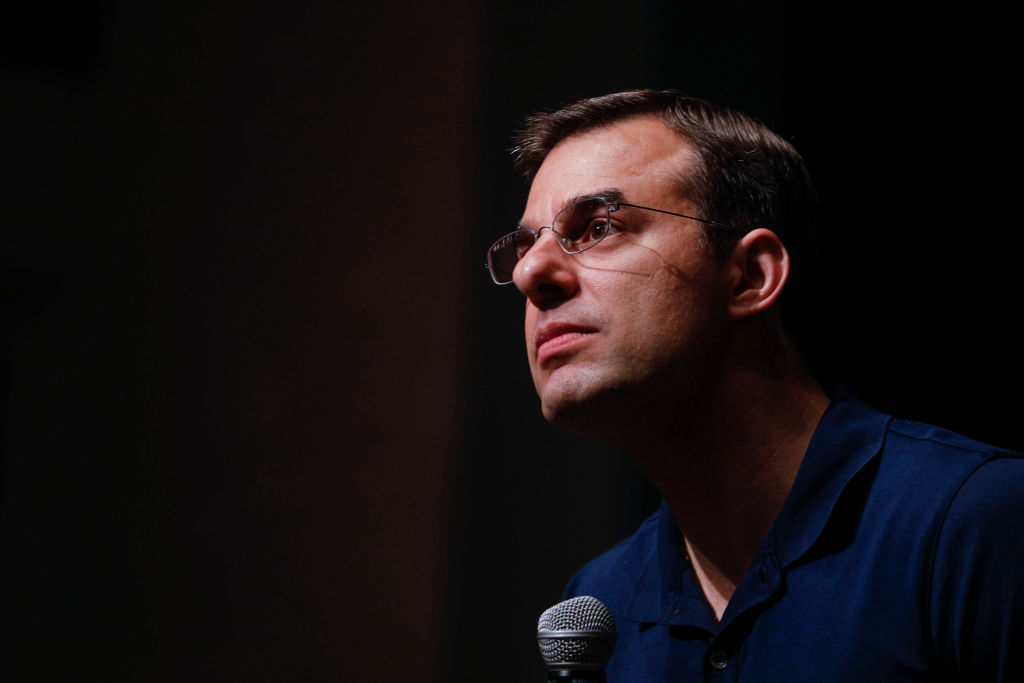Sometimes in politics you win without actually winning. Barry Goldwater and George McGovern, two candidates who lost in blow-out landslides to Lyndon B. Johnson and Richard Nixon, are the obvious examples. Johnson won in 1964, but it was Goldwater’s campaign that indicated where American politics was heading in the next 20 years. McGovern lost in 1972, but the ‘acid, amnesty, and abortion’ ideology that held him back at the time became, in only slightly diluted form, the regnant social orientation of the Democratic party from his day to our own.More recently, Ron Paul lost his two campaigns for the Republican presidential nomination — in 2008 and 2012 — but won anyway. Paul was a libertarian, and with the Tea Party, which arose right after his first campaign, the GOP turned in his direction, and even elected his son, Rand Paul, to the US Senate. Paul was also a populist who unhesitatingly denounced George W. Bush, the Republican establishment, and the foreign wars that both his president and his party supported. On those questions, Donald Trump in 2016 sounded a lot like Ron Paul in 2008. (Those who follow these things closely know that Paul also condemned NAFTA and rejected open borders.)Neither populism nor libertarianism began with Ron Paul, of course, but the Texas Republican successfully brought together the two forces that would give the Republican party a new lease on life after the failure of the Bush project and the neoconservative ideology that supplied its intellectual ballast. Populism has turned out to be the more potent of those forces, as the sad and silly story of Justin Amash shows.Amash was first elected to Congress in 2010 as a Ron Paul-endorsed candidate and part of the Tea Party wave. Almost from the start, the Tea Party was a convenient label for conventional Republicans to adopt in place of the tainted Bush brand and all that came with it. But Amash was an actual libertarian, not just a Republican in need of a makeover. He knew where he was coming from intellectually and ideologically, so well in fact that he could draw a distinction between his brand of libertarianism and Ron Paul’s own. While Paul traced his thought to Ludwig von Mises, Hans Sennholz, and Murray Rothbard — the last of whom was a pioneer in libertarian populism — Amash identified with Friedrich Hayek and a less radical tradition. He said as much soon after he was elected, when he spoke at a CPAC-adjacent event organized by Young Americans for Liberty, an organized that had been started by the Paul campaigns youth director. Amash was grateful to Paul, and to YAL, but he took pains to define himself as something other than simply a Ron Paul Republican. He not only wanted to be his own man — which was fair enough — but he was evidently uncomfortable even then with right-wing populism, libertarian-inflected or not.Now Amash has left the Republican party, declaring his independence from it in a July 4 Washington Post op-ed. The place of his announcement is as symbolic as the timing: after calling for President Trump’s impeachment, Amash’s support among Republicans and on the right has evaporated, to the point where he had little chance of winning re-nomination as a Republican for his House seat. He will probably be out of Congress in 18 months. Liberals in the press, NeverTrump Republicans, and non-populist libertarians are now looking to Amash as a possible Libertarian party or independent candidate for president next year. But they might want to be careful what they wish for: if Amash could not even pull enough Republican support in his own district to win re-nomination, he is extremely unlikely to pull Republicans away from Trump in an extremely polarized presidential election next year. What Amash for president will do is give centrists uncomfortable with the hard left turn of the Democratic party an alternative to voting Democrat in November 2020. He’ll split the anti-Trump vote more than he’ll split the Republicans. If he runs at all — Amash is big on symbolism over practicality, but the symbolism of becoming the next Gary Johnson or William Weld might not appeal to him very much. Then again, what else does he have left?What’s sad about this is that Amash has proved a certain kind of libertarian is too naive to achieve anything for the cause of liberty. Amash has many principles in which he professes to believe, including the unborn’s right-to-life. Trump and the populist Republican party are clearly better than the Democrats, or any non-existent third force, where some of those principles are concerned. With respect to others, such as reducing government spending and power, both major parties do nothing for libertarians like Amash. But having presence in the GOP can pay dividends even there when the occasion arises — when it means that there are more small-government Republicans willing to hash out a compromise like the ‘sequester’ that limited both domestic and military spending, for example, one of the rare success stories for smaller government in living memory. Real-world politics is messy and compromised, and so anyone who takes part in it must prioritize. Was calling for impeachment really the right priority for Amash, even by his own lights? Was it more important to make a futile attack on Trump than to do whatever he could for the pro-life and limited-government causes? Amash believes he has taken a stand for the rule of law, but the Mueller report — which, notably, does not call for impeachment, unlike the Starr Report of 20 years ago — is a sorry hill to die upon. There is nothing here of the nobility of a last-ditch stand against an unjust war, for example.What Ron Paul did was to counteract neoconservatism in the Republican party with libertarianism and populism. Populism proved to be more potent, but libertarianism itself contributed important elements to populism, including an articulate anti-interventionist foreign policy and a sense of class warfare as about power, not just wealth. Amash was never comfortable with populism, but libertarianism without it has no market at all. The Washington Post and the NeverTrump neocons share Amash’s animosity toward Trump and the populist right, but they share even fewer of his professed principles than Trump does. Ron Paul won despite losing; Amash teaches libertarians simply how to lose by losing.
Justin Amash is the anti-Ron Paul
He’s teaching libertarians how to lose

GRAND RAPIDS, MI – MAY 28: U.S. Rep. Justin Amash (R-MI) holds a Town Hall Meeting on May 28, 2019 in Grand Rapids, Michigan. Amash was the first Republican member of Congress to say that President Donald Trump engaged in impeachable conduct. (Photo by Bill Pugliano/Getty Images)
Sometimes in politics you win without actually winning. Barry Goldwater and George McGovern, two candidates who lost in blow-out landslides to Lyndon B. Johnson and Richard Nixon, are the obvious examples. Johnson won in 1964, but it was Goldwater’s campaign that indicated where American politics was heading in the next 20 years. McGovern lost in 1972, but the ‘acid, amnesty, and abortion’ ideology that held him back at the time became, in only slightly diluted form, the regnant social orientation of the Democratic party from his day to our own.More recently, Ron Paul lost his…

















